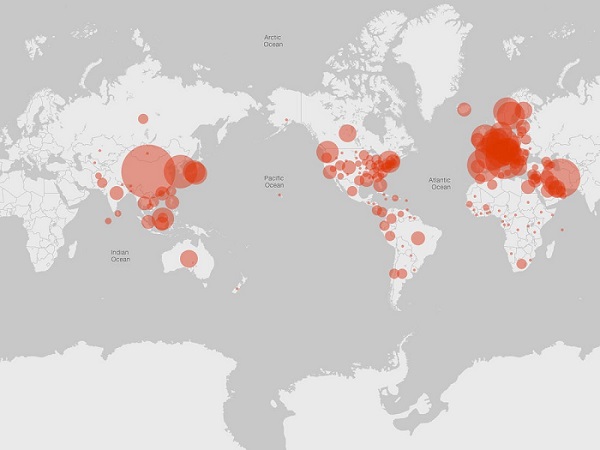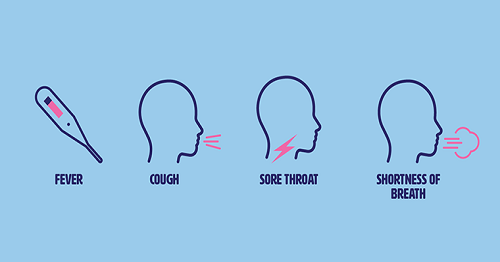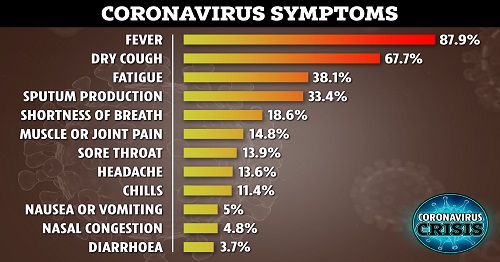GOVERNMENT OF THE KINGDOM OF ESWATINI

MINISTRY OF COMMERCE, INDUSTRY AND TRADE
GENERAL GUIDELINES FOR ALL INDUSTRIES
Following the declaration of a partial lockdown in the wake of the outbreak of COVID-19 worldwide, the Ministry of Commerce, Industry and Trade, in consultation with the business community, has identified the following principles within which businesses shall operate.
First and foremost, as a Ministry, we recognise that no business is non-essential but for the purposes of COVID-19, the Ministry recommends that the following industries continue operating as normal under World Health Organization (WHO) and Ministry of Health guidelines.
Essential services
The sectors below have been for this purpose identified as critical industries:
- Food retailers
- Consumer Goods suppliers
- Manufacturers and all businesses that are involved in the food and consumer goods supply chain.
- Agriculture and Agro-processing
- Public Transport and cross-border transport
- Fuel stations
- Financial services
- Waste disposal services
- Health workers and Emergency Response Workers
- Fire and Emergency services
- Security Services
- Water and Sanitation Services
- Pharmacies
- Telecommunications
- Hospitality Industry
- Energy Sector
- Media
For those businesses that do not fall within the specified sectors above, except for bars which remain closed and bottle stores which shall operate within a stipulated time frame, we encourage them to scale down by minimising their working hours. Businesses that cannot comply to WHO and Ministry of Health guidelines are expected to shut down until the situation normalises.
We do understand that some businesses will be affected by external factors and we encourage those to engage their employees to come up with a workable plan on how to manage the situation.
Food retailers
These are outlets that provide food; including supermarkets, restaurants and deli shops. However, we urge these businesses to follow the guidelines; which I shall be announcing shortly. We also encourage these businesses to introduce innovative ways of delivering their food items such as online orders and deliveries as well as digital payments. We cannot over-emphasise the importance of cooking home-made meals to those who can in order to minimise movement during this period.
Consumer Goods suppliers
These include retail and manufacturing industries in the consumer goods sector such as suppliers of raw materials, hand sanitisers, facial masks, disinfectant wipes, surgical gloves, toilet paper, baby formula and others.
Cross-border trade
This will continue as normal. However, the Ministry of Home Affairs shall advise in the instance of individual informal cross border traders.
Informal sector
We are aware that the informal sector shall be hardest hit by these developments. We shall, therefore, be working with Municipalities to ensure that the situation is managed amicably. Those who want to work are advised to observe the safety precautions as stipulated.
Essential business services at the Ministry of Commerce
The Ministry wishes to assure the public that our essential services such as company registrations, liquor and trading licences and their renewals shall continue as normal. We do, however, encourage Emaswati to use our online registration and name reservation services on https://www.online.gov.sz in order to minimise long queues at the risk of exposure to COVID-19. In a few days, we shall be announcing an online mobile payment system to make transactions more convenient.
Business principles and guidelines
As a country, we are aware that people’s lives are at risk and it is, therefore, everyone’s duty to take urgent preventative measures to minimise human loss. The business community needs to be at the forefront of these measures and it is against this background that the following guidelines must be implemented to reduce the spread of the virus to protect employees and customers in all sectors.
Manufacturing and Processing:
- Government encourages the introduction of more shifts to limit the number of employees in factory floors and restrict the number of employees in any defined working area.
- Businesses need to ensuring compliance of the World Health Organization’s social distancing guidelines (1.5-meter distance between 2 individuals). This is not negotiable.
- Businesses are compelled to place hand sanitiser dispensers at the entrance and throughout the premises and ensure that they are replenished and/or replaced at all times.
- Businesses need to provide hygiene reminders on visible posters and digital platforms.
- Sanitation stations should be placed at every corner with high human traffic.
- All business should reinforce cleaning and sanitisation protocols.
- Businesses should step up the frequencyof cleaning by making cleaning routines "even more rigorous."
- Businesses should periodically wipe down checkout lanes and touchscreens.
- Businesses should sanitise counters, doors and areas subject to frequent contact by people.
- Businesses need to establish emergency protocols in the event any employee exhibits symptoms consistent with COVID-19 and immediately ensure traceability of contacts with the said suspected employee. This is to ensure that should the employee eventually prove positive, all the people with whom said employee would have come into contact are traced and then tested.
- As a general rule, employers are to ensure that public transport in which their employers are transported should be sanitized both at boarding and disembarking.
In addition to the above, establishments in the food retail sector shall ensure:
- That all shopping carts (trolleys) are sanitised thoroughly after each use by shopping patrons
- Once a trolley has been used by each patron, it shall be sanitised once again, ready to be used by the next patron.
- Unnecessary contact to food by patrons shall be restricted and kept at an absolute minimum3
- Each retail establishment shall be sanitised periodically as is necessary so as to rid the atmosphere of flying germs.
- At Point of Sale (POS), there shall be a dedicated resource whose sole job will be to enforce social distancing measures as patrons make payment for their shopping.
- It shall be the duty of Management to ensure that at no point in time does the number of people exceed 20 inside any establishment. For smaller retail shops, this figure shall even be lower. In any event, social distancing of 1.5 metres apart shall be observed without fail.
- The exchange of legal tender, i.e. notes and coins, should be kept at an absolute minimum in favor of digital payment platforms which we hereby encourage that they be fully functional at all times.
- Management agrees to enforcing these measures at all times and the Ministry of Commerce, Industry and Trade with the help of duly authorised agencies such as Business Eswatini and FESBC shall ensure compliance.
- Failure to comply with the aforementioned can and will result in the closure of that business in the interest of people’s health.
For further information on business interventions, please contact the MSME Director Mr Mluleki Dlamini on 2404 3201/2/3/4/5/6 or send him an email at mlulekisakhile@yahoo.com
. You can also call our toll-free line 800 1002 or the following business federations:
Business Eswatini - 2404 0768
Federation of Eswatini Business Community (FESBC) - 2505 9199
Released by
Senator Manqoba B. Khumalo
Honourable Minister for Commerce, Industry and Trade
25th March 2020









